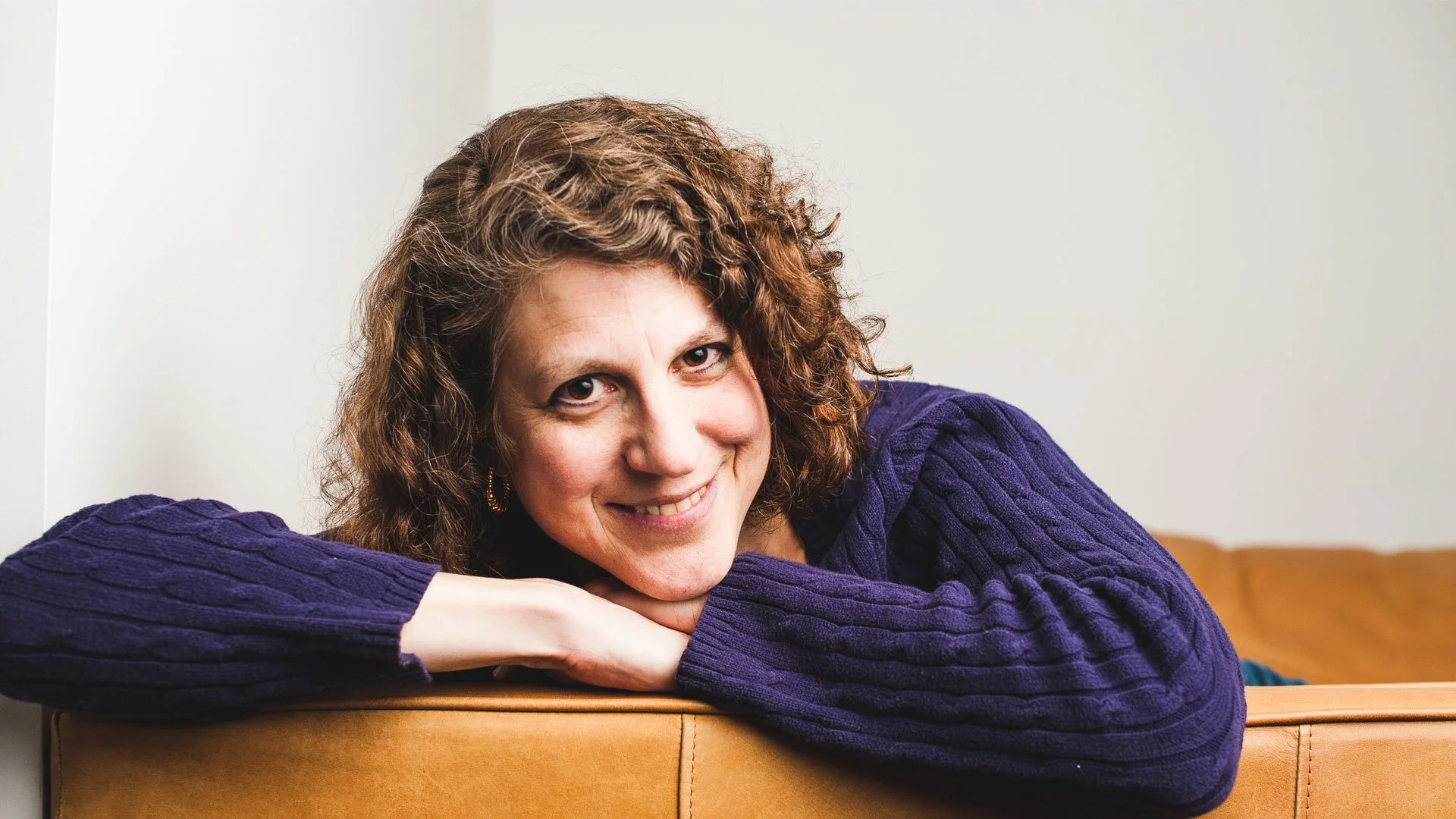Spotlight: Babylon: A Novel of Jewish Captivity by Michelle Cameron
/A family saga spanning three generations of exile, Michelle Cameron’s Babylon: a novel of Jewish Captivity (Wicked Son Books, September 12, 2023) relates a little-known epoch of Jewish history.
Everything changes for Sarah the day Nebuchadnezzar’s army storms Jerusalem. In an instant, her peaceful life on the farm is ripped away: her city sacked, her temple desecrated, her people enslaved. Marched across unforgiving desert sands to Babylon, Sarah — and what remains of the Judean people — must find a way to keep their faith alive in a new and unforgiving home.
Displaced within an empire of strange gods and unimaginable wealth, Sarah and her descendants bear witness to palace intrigue, betrayal, brutal sacrifice, regicide, and a new war brewing in the east. Through every trial, the Hebrew people attempt to preserve their religion. Uri, Sarah’s son, works as a scribe, transcribing incredible stories of prophets and visions, Creation and Exodus… stories that establish the central tenets of the Hebrew faith.
The novel raises provocative questions about assimilation versus maintaining religious tradition, issues of intermarriage, the rights of property, the compiling of early Biblical stories, and the painful choices that contributed to the longevity of the Jewish people.
A family saga spanning three generations of exile, captivity, and return, Babylon weaves a powerful narrative of hope and perseverance during one of the darkest and least-explored eras of Jewish history.
Excerpt
Part One: The Captives
586 BCE–Year 1 of the Exile
1. Sarah Under Siege
Sarah stood at the window of the family farm outside of Jerusalem, staring across the hills into the confusion of the city. Flames and smoke rose from Mount Moriah. But it couldn’t be—
“Papa,” Sarah choked out.
“How many times have I said to stay away from that window?” Baruch, her father, pushed her aside to stand in front of the window himself. “God help us,” he gasped.
Flames were shooting up from the Temple Mount. Solomon’s Temple—God’s Temple—was burning. “How could they?” she whispered.
Her father wheeled on her. “They’re idolators; that’s how. Placed on this Earth for no other purpose but evil.”
It was inconceivable. Why hadn’t God stopped them? Sarah could almost smell the rich scent of the cedar and fir walls that lined the Temple as they smoldered in flame. Even at this distance, she saw the Chaldean forces gleefully loading carts with the gold and silver ornaments of the Lord, seizing them as war loot to enrich the coffers of the Babylonians. How could anyone destroy such beauty?
Her father irritably brushed aside her comment, his hand smacking the air.
Unable to bear it, she looked in another direction. Beyond the Temple Mount, outside the city, soldiers raced back and forth on the solid earthen banks they’d built up over the past weeks to attack Jerusalem’s sacred stone walls. They made Sarah think of wasps buzzing angrily in date palms, swarming about her head as she collected ripe fruit. She watched, helpless, as the enemy cast heavy stones from giant catapults while shower after shower of arrows fell upon the city. The air was acrid with the smell of dust and smoke and of oil bubbling on Judean fires, sent scalding down the walls to repel the attackers.
“We’ll see an end to this before nightfall,” her father said, his voice heavy with resignation.
They had not seen daylight for many days. The skies were dark and angry, brooding, as if God Himself wished to add to the assault’s fury. The prophets had warned them, Father had growled just last night. Jeremiah had warned them. Still Sarah prayed, trying to ignore the tumult surrounding her. It was no use. God was angry with His people, the prophets proclaimed, and had sent the bold Babylonian conquerors to punish them. Sarah believed them.
After all, Sarah’s God was always angry. Just like her father. She often confused the two.
“What will they do to us?” moaned Aliza, Sarah’s mother.
Mother sat on her stool near the hearth, having gathered her household treasures around her. In her lap was a pile of hand-worked linen, which she stroked compulsively.
“Aliza,” Baruch chided her, turning from the window, his face bleak. “With death lurking in every corner, why do you cling to that old cloth?”
But Sarah knew why. Her mother’s life was confined to the solidly built rooms and terraced fields of the sprawling white stone farmhouse. She needed to clasp something solid, gain comfort from softness she could touch and caress. As her father turned away, Mother snuck the cloth to her cheek, hand shaking. Sarah knelt by her stool, laying her head in her mother’s lap to both give and take comfort. Aliza’s trembling fingers moved from the cloth to Sarah’s hair.
It would not be long now, Sarah thought, her heartbeat rising in panic.
The servants, suspecting the worst, had fled the farm yesterday, leaving their rakes in the field and dinner half cooked. Only old Dina remained, too brittle and cloudy eyed to contemplate escape. The handmaid sat blinking in a corner of the room, her wrinkled face working in silent terror.
Sarah pictured the soldiers marching up the hillside in orderly rows, breastplates glinting in the sun. The family would huddle in a corner while the greedy troops seized her mother’s shining metal mirrors and soft goatskin rugs. They would round up the sheep and goats now bleating piteously in the pen behind the house. But then Sarah willed them to move on. After all, there was no reason for them to lay good farmland to waste.
But even if they burned this season’s crop in the field, Sarah thought, that would surely be the worst of it. Her father’s fears of death and destruction were groundless. They had to be. Sarah could not imagine life beyond the family farm, this safe, familiar place where she had lived every day of her young life.
Buy on Amazon | Bookshop.org
About the Author
MICHELLE CAMERON’S Beyond the Ghetto Gates (She Writes Press, 2020) was awarded a Silver Medal in Historical Fiction by the Independent Book Publishers, won First Place/Best of Category for the Chanticleer Goethe Awards and was a Foreword Indies finalist. Her previous historical novel, The Fruit of Her Hands (Simon & Schuster’s Pocket Books, 2009), is based on the author’s thirteenth-century rabbi ancestor, Meir ben Baruch of Rothenberg.
Michelle’s novel-in-verse, In the Shadow of the Globe (Lit Pot Press, 2003) was named Shakespeare Theatre of NJ’s 2003-4 Winter Book Selection. In addition, it was performed at a variety of venues, including the Stella Adler Studio’s Shakespeare Benefit.
She lived in Israel for fifteen years (including three weeks in a bomb shelter during the Yom Kippur War) and served as an officer in the Israeli army teaching air force cadets technical English.
A director of The Writers Circle, Michelle teaches creative writing to children, teens, and adults in NJ and virtually. Residing in Chatham, NJ, with her husband, Michelle has two grown sons of whom she is inordinately proud. Visit her website for more information https://michelle-cameron.com.














































